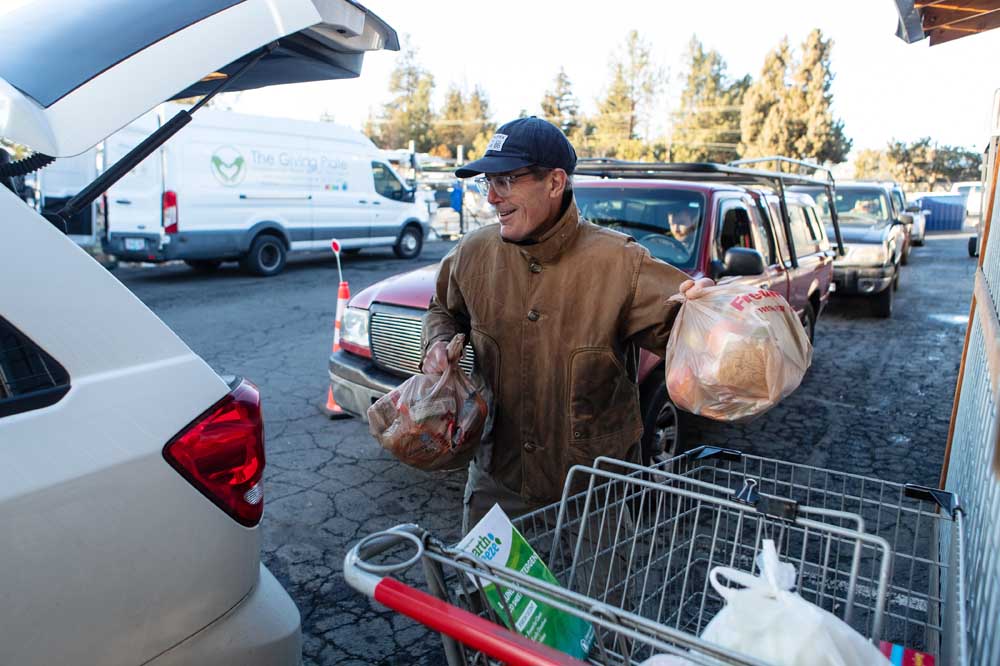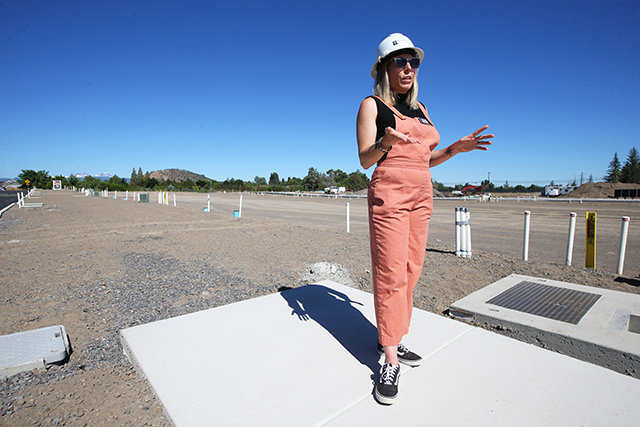Myriad options in Central Oregon for donating to food banks
Published 5:30 am Tuesday, December 19, 2023

- John Pirolo loads bags of food into a vehicle while volunteering at The Giving Plate, Bend’s largest food pantry, on Dec. 8 in Bend.
Food banks, meal sites and shelters are in constant need of food donations all year. The end of the year is a particularly important time to donate food, as families look for ways to put a hearty meal on the table during holidays in the face of challenging economic times.
“Between colder temperatures and higher heating bills, along with increased holiday expenses, we typically see a 10% increase at our pantries and meal sites around the holidays,” said Carly Auten, food program director for NeighborImpact, a nonprofit organization that partners with 55 food banks in Central Oregon to feed those in need.
Trending
Often, social welfare experts describe food problems in their region at its weakest point: food insecurity, a status that refers to having limited or uncertain access to enough healthy food. In Central Oregon, where 1 in 5 residents is tagged with the label, it simply means they are hungry too often.
For those who want to make a food donation, questions often arise about where to give donations and what is needed. A bag or two of groceries is always a good idea, but there are other options too, including donating money or volunteering.
Food pantries and other service providers will have different needs at different times, so it’s always a good idea to contact them ahead before making a run to the grocery store, said Auten.
Canned foods — including fruit and vegetables, stew, soup, tuna, chicken and meat — are usual donation requests. Jars of peanut butter and nut butter are popular.
“Most of us are interested in high protein canned foods,” said Donna Burklo, program director for Family Kitchen in Bend. “We cannot accept foods that are out of date. Please bring things that are in date and unopened.”
Burklo also recommends high-protein foods that are easy to open, including energy bars, granola bars and Clif Bars. “These pack the most nutritious into a small package,” she said.
Trending
Fresh produce, bread and other items with a limited shelf life are accepted, but check first with the food pantry to ask what is needed to avoid overloading the pantry with perishable items.
Food pantries also accept monetary donations. Auten said cash goes a long way because NeighborImpact buys in bulk.
“Our dollars go much further. We can buy two to three times more through our bulk buying and pricing than folks can get through retail,” she said.
Gift cards to grocery stores, gas stations and barbershops/salons are also appreciated. Auten said those who can’t offer food or money but want to give something, can volunteer at one of the pantries, as well.
“We can’t do this work without volunteers,” she said. “Every donation is appreciated. Any support, whether it’s food donations, monetary donations, volunteering, all of it is extremely appreciated.”
Auten also recommends bringing personal hygiene items because these cannot be purchased with Supplemental Nutrition Assistance Program benefits, formerly known as food stamps. Items include diapers, toilet paper, shampoo, soap, toothpaste and toothbrushes.
Family Kitchen, which makes 20,000 meals each month, accepts large container food donations, including jumbo-size cans of tomato sauce, beans, green beans and canned fruit. Packages of pasta, flour and sugar are also accepted. Donations can be dropped off from 8 a.m. to 5 p.m.
In Bend, some places that accept donations include NeighborImpact, Family Kitchen, St. Vincent de Paul, The Giving Plate, Nativity of Bend and the Salvation Army.
A full list of places that accept donations of food can be found on the NeighborImpact website, www.neighborimpact.org. Under Get Help,’ hover over Food Bank and then Get Food. More than 50 places in Central Oregon are listed.








